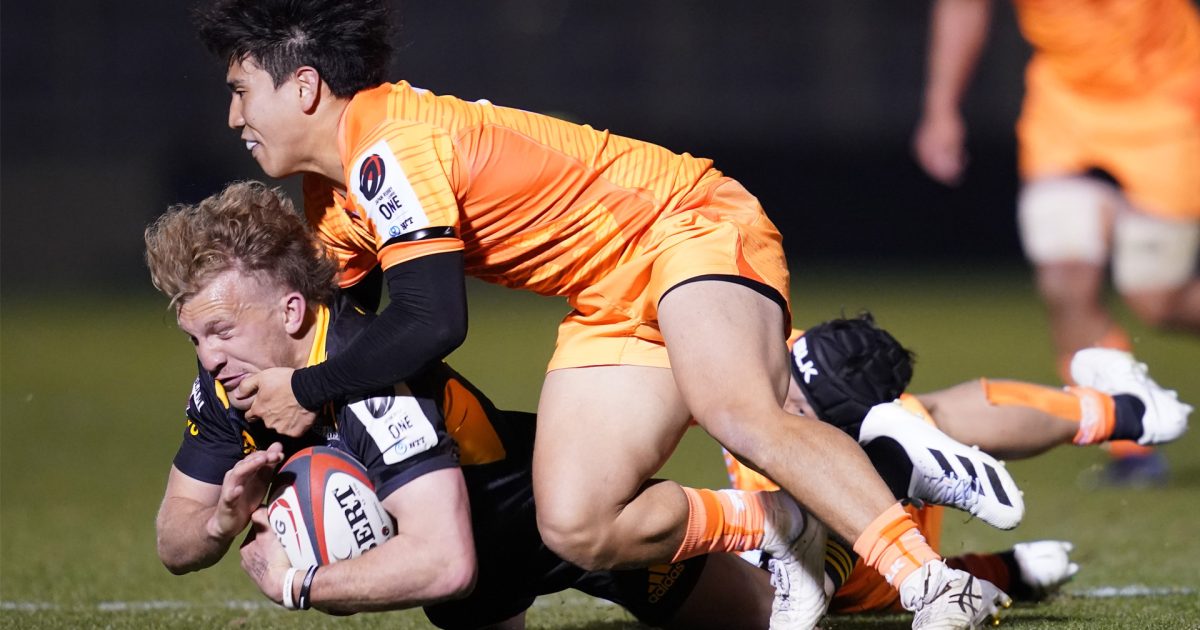'They're not shy of smacking each other': The big change in Japan's development

The physicality in Japan’s premier club rugby competition has come along in leaps and bounds in recent years according to Tokyo Sungoliath head coach Milton Haig.
While the speed and skill of Japan’s Rugby League One has – formerly known as the Top League – has always been well-revered, questions have always existed over the physicality of the rugby being played in Japan.
Since coming on board with the Sungoliath in 2020 after spending two World Cup cycles with Georgia, Haig has noticed the competition go from strength to strength, thanks in part to the continued arrival of foreign players from around the globe.
“I suppose since the 2019 World Cup that was here in Japan, obviously there was a lot of interest post that tournament for players to come here,” Haig said on Tuesday. “Now, what you’re finding is a lot of the teams have got world-class players scattered amongst some of their Japanese players and obviously with the performance of Japan at 2019, it’s creating a lot of interesting rugby within the country itself. With that quality of players and obviously with Japan improving their performances at international level, the whole competition itself has got a lot better.
“Probably a few years back it might have been a bit of a hit and giggle. I know a lot of people used to say it was quick but there wasn’t a lot of physicality. Well, I think that’s definitely changed now and I think one of the things that I’ve noticed since I’ve been here in the three years is how physically the competition’s got, certainly at the breakdown and in defence and there’s still a lot of high skill level within all teams but definitely that contact area is pretty serious these days.”
The Sungoliath themselves are well stocked with foreigners, including Sean McMahon, Samu Kerevi and Damian McKenzie, who featured for Australia and New Zealand during last year’s test season.
Alongside that highly regarded trio, Haig also has 13 Japanese test representatives on his books, as well as a number of non-international foreigners such as Tevita Li, Harry Hockings, Sam Talakai and Tom Sanders.
With so much international representation in the league, it’s no surprise that the physicality has stepped up a notch.
Some cynics might suggest that while that’s improving the quality of JRLO, it doesn’t bode well for Japan’s national side – but Haig says that bringing in players from around the world has also helped indirectly, with local players now also stepping up their game.
“Obviously, you get guys like [Springboks hooker] Malcom Marx who’s 120 kg, he likes the physicality area, he likes the breakdown area, he’s good at the jackal and stuff like that. So, to actually move a guy like him who’s got pretty good technique around that area, in itself’s a bit of a job so you’ve gotta use a bit of physicality actually trying to get rid of him really,” Haig said.
“We spend a lot of time around our contact area with attack and defence but I think there’s a bit of both, I think the foreigners have come in, there’s a lot of world-class foreigners, very good players here now and I think they’ve brought that extra [physicality]. I think the Japanese boys have always hid it a little bit but once the role’s clarified and technique’s made a little better, they’re not shy of smacking each other, I can tell you that. So it’s pretty tough now, that area.”











































































